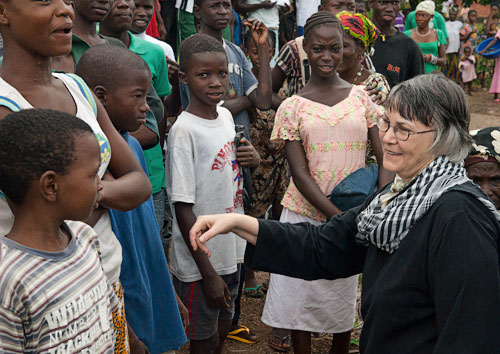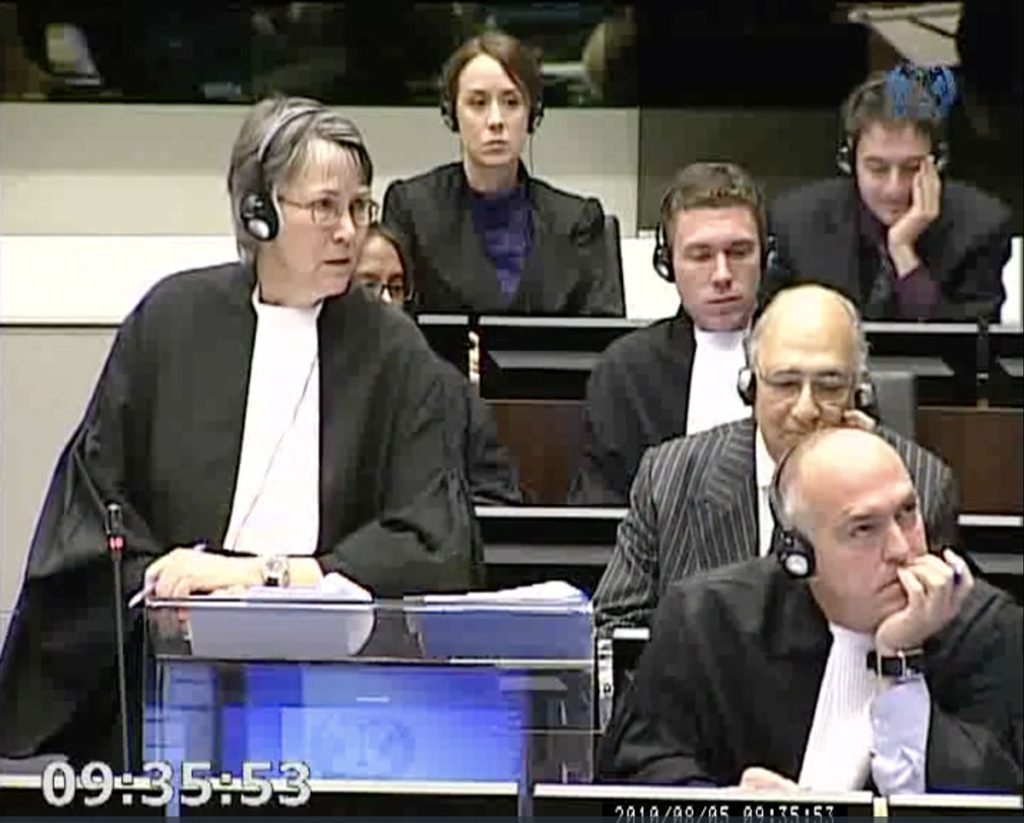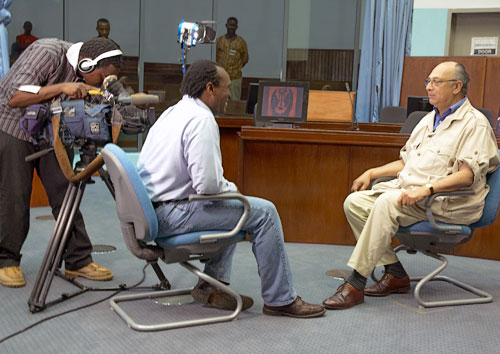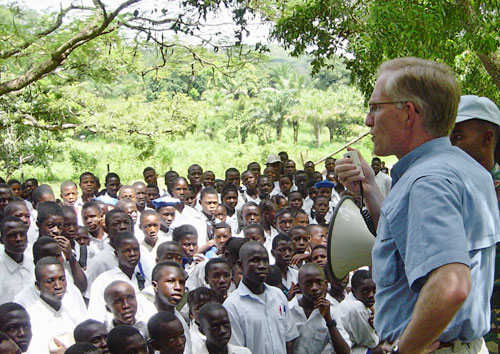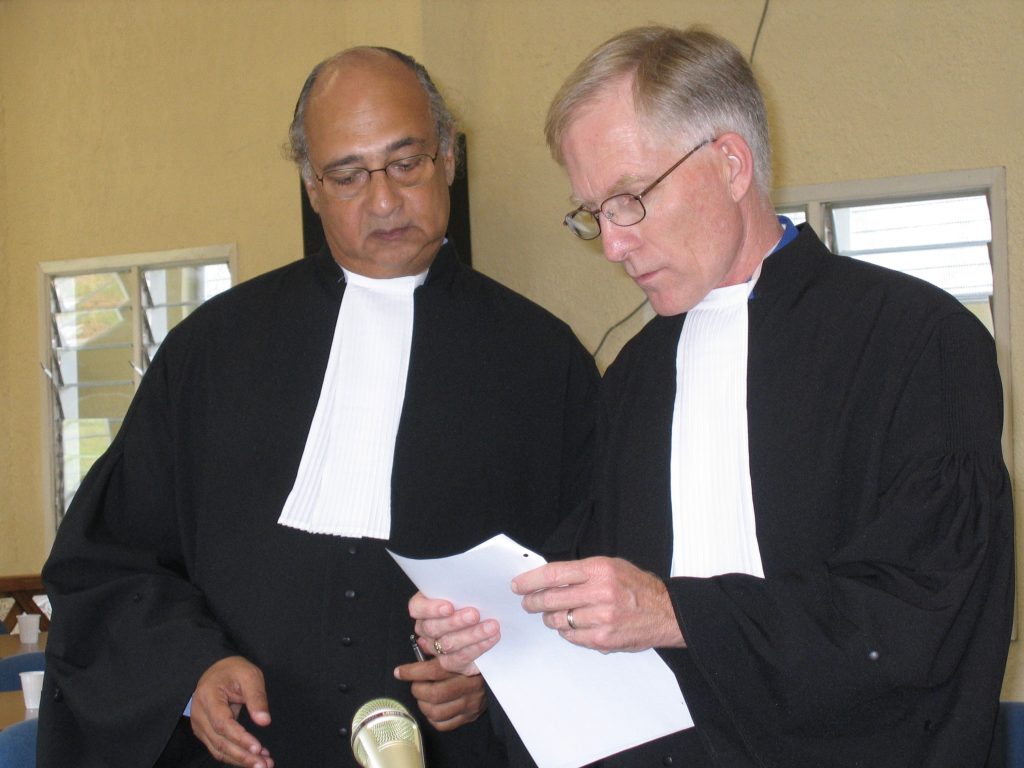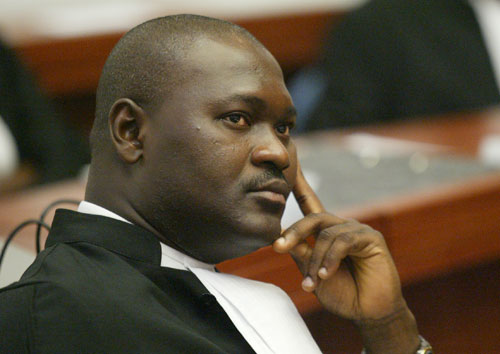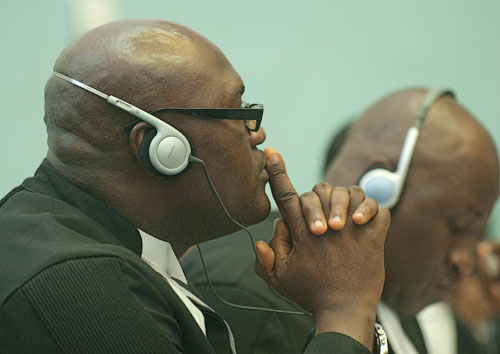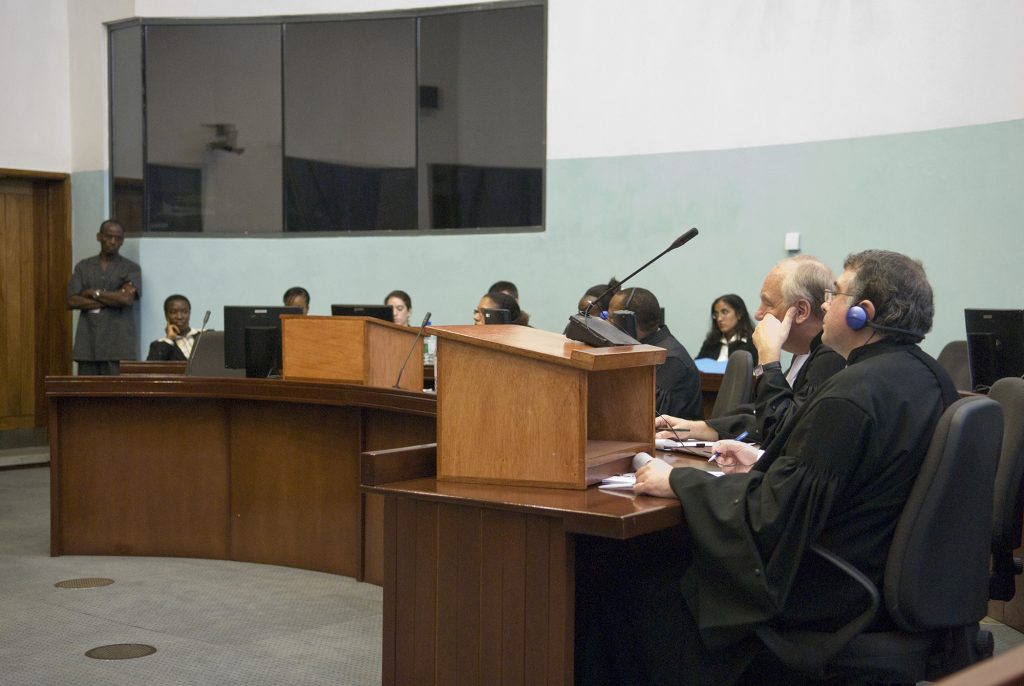The Prosecutor of the Special Court was appointed by the Secretary-General of the United Nations, and the Deputy Prosecutor was appointed by the Government of Sierra Leone. The Office of the Prosecutor was one of three organ of the Special Court (the other two being Chambers and the Registry). It was independent and per the Statute did not seek or receive instructions from any Government or from any other source.
The Office of the Prosecutor (OTP) was responsible for the investigation and prosecution of persons deemed to “bear the greatest responsibility” for violations of international humanitarian law and Sierra Leonean law since 30 November 1996. Pursuant to the Statute, violations of international humanitarian law include crimes against humanity, violations of Article 3 common to the Geneva Conventions and of Additional Protocol II (commonly referred to as war crimes), and other serious violations of international humanitarian law.
The Statute also allowed the Prosecutor to charge serious crimes under Sierra Leonean law, including offences relating to the abuse of girls under the Prevention of Cruelty to Children Act (1926) and offences relating to the wanton destruction of property under the Malicious Damage Act (1861), although these crimes were not charged in cases before the Special Court. The Special Court had no jurisdiction over any person who was under the age of 15 years at the time of alleged commission of the crime.
The Office of the Prosecutor (OTP) was responsible for initiating and conducting the investigations, with the power to question suspects, victims and witnesses; to collect evidence and to conduct on-site investigations. It also had the power to ensure the safety, support and assistance of potential witnesses and sources. The OTP was empowered to seek the assistance of any State authority, as well as any relevant international body (including INTERPOL) to carry out its functions.
If satisfied that a suspect has committed a crime or crimes within the jurisdiction of the Special Court, the OTP prepared an indictment, which was submitted for approval by a Judge. After an indictment was approved and the accused person transferred to the custody of the Special Court, the OTP was responsible for prosecuting the case before the Special Court.
The OTP indicted a total of 13 persons, and secured nine convictions. One person (Foday Sankoh) died before he could be brought to trial, and one (Sam Bockarie) died outside the jurisdiction of the Court. A third accused (Sam Hinga Norman) died before judgement in his trial. The whereabouts and fate of a fourth (Johnny Paul Koroma) is unknown.
The Office of the Prosecutor was an independent organ of the Special Court. The Prosecutor was appointed by the Secretary-General of the United Nations, while the Deputy Prosecutor was appointed by the Government of Sierra Leone
Prosecutors of the Special Court

Brenda Hollis (United States), Prosecutor February 2010 to present. Ms. Hollis was appointed Prosecutor in February 2010 by UNSG Ban Ki-Moon.
From 2007 to 2010, she was a Principal Trial Attorney in the Office of the Prosecutor (OTP), where she was responsible for leading the legal team prosecuting former Liberian President Charles Taylor. From 2001 to 2007, Brenda Hollis was an Expert Legal Consultant on international law and criminal procedure. During this period she trained judges, prosecutors and investigators at courts and international tribunals in Indonesia, Iraq and Cambodia. She also assisted victims of international crimes in the Democratic Republic of Congo and in Colombia to prepare submissions requesting investigations by the International Criminal Court in The Hague.
In 2002 and 2003, and again in 2006, Ms. Hollis served as a consultant to the OTP, where she assisted in evidence-gathering missions and provided legal and tactical advice. Ms. Hollis was Senior Trial Attorney at the International Criminal Tribunal for Yugoslavia (ICTY) from 1994 to 2001, where she served as lead counsel in a number of historic prosecutions. She led case in which rape was charged as torture, and was lead counsel in the preparation of the case against former Serbian President Slobodan Milosevic until her departure from the ICTY in 2001.

Stephen Rapp (United States), Prosecutor January 2007 to September 2009. Prior to his appointment as Special Court Prosecutor, Mr. Rapp served as Chief of Prosecutions at the International Criminal Tribunal for Rwanda (ICTR) since May 2005. Prior to his appointment to his present position as Chief of Prosecutions, Mr Rapp acted as ICTR Senior Trial Attorney in what has been called the “Media Trial,” against the principals of RTLM radio and the editor of the Kangura newspaper. Before joining the ICTR, Mr. Rapp was United States Attorney for the Northern District of Iowa (USA) from November 1993 until May 2001. Prior to service as US Attorney, he was in private practice of law in Waterloo, Iowa. He also served as a Staff Director and Counsel at the US Senate Judiciary Committee and as an elected member of the Iowa Legislature.

Desmond de Silva, QC (United Kingdom), Deputy Prosector August 2002 to July 2005. Prosecutor July 2005 to June 2006. Desmond de Silva wass appointed Deputy Prosecutor by the Government of Sierra Leone in July 2002. In May 2005 the Secretary-General of the United Nations selected him to succeed David M. Crane as Prosecutor, effective July 2005. Mr de Silva was one of Britain’s best known Queen’s Counsel and, prior to joining the Special Court, had been in practice for 40 years at the English bar. After being called to the Bar at the Honourable Society of the Middle Temple in 1964, Mr. de Silva entered the famous London Chambers of the Rt. Hon Sir Dingle Foot, QC, MP. In 1984 he was appointed one of Her Majesty’s Counsel. He has also been a member of the Sierra Leone Bar since 1969 when he arrived in Freetown to appear as defence counsel in Sierra Leone’s first treason trial.

David M. Crane (United States), Prosector April 2002 to July 2005. Prior to joining the Special Court, Mr. Crane served over 30 years in the U.S. Government. Appointed to the Senior Executive Service of the United States in 1997, Mr. Crane has held numerous key managerial positions during his three decades of public service, to include a Senior Inspector General, Department of Defense, Assistant General Counsel of the Defense Intelligence Agency, and Waldemar A. Solf Professor of International Law at the United States Army Judge Advocate General’s School.
David Crane holds a Juris Doctor degree from Syracuse University, a Masters of Arts Degree in African Studies and a Bachelor of General Studies in History, summa cum laude, from Ohio University.

Joseph Kamara (Sierra Leone), Deputy Prosecutor August 2008 to September 2010, Acting Prosecutor September 2009 to February 2010. Mr. Kamara joined the Office of the Prosecutor in January 2004, and a year later he was called upon to lead the CDF Prosecution Team as Senior Trial Attorney. He was named Deputy Prosecutor in August 2008, and served as Acting Prosecutor from September 2009 to February 2010. Prior to joining the Special Court, Mr. Kamara worked for eight years as prosecutor in Sierra Leone’s Office of the Director of Public Prosecution, where he rose to the rank of Senior State Counsel. In 1996, and again from 2000-2004, he worked in private practice, including several law firms in Washington, D.C.

Dr. Christopher Staker (Australia), Deputy Prosecutor 2005 to August 2008, Acting Prosecutor July 2006 to December 2006. Dr Staker was Deputy Prosecutor of the Special Court for Sierra Leone from July 2005 until August 2008, and was Acting Prosecutor from July to December 2006. He was also counsel for the Prosecution of the Special Court in other periods between 2003 and 2009. He was lead counsel for the prosecution in the appeals in the AFRC, CDF and RUF cases. Dr Staker is a barrister in London practising in the areas of public international law, international criminal law, international arbitration, public and administrative law, immigration, tax, European law and human rights. He was originally admitted to legal practice in Australia in 1987. Positions that he has previously held include counsel in the Office of International Law of the Australian federal Attorney-General’s Department, Counsel Assisting the Solicitor-General of Australia, Principal Legal Secretary at the International Court of Justice, and Senior Appeals Counsel at the International Criminal Tribunal for the Former Yugoslavia (ICTY). In additional to cases before the SCSL and ICTY, and before national courts at all levels, he has appeared as counsel in cases before the International Court of Justice and the International Tribunal for the Law of the Sea.


